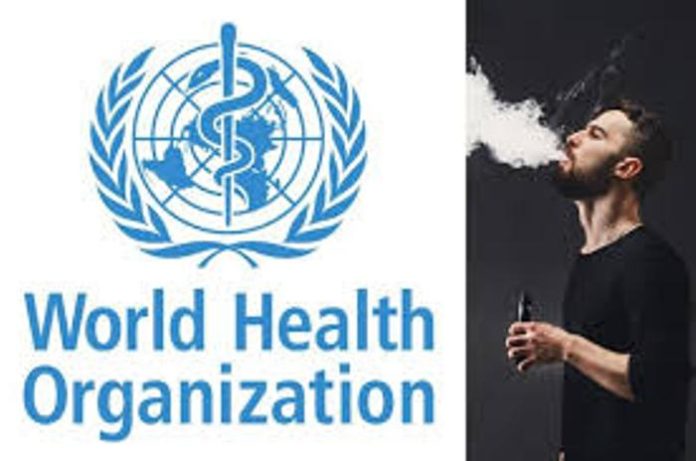New Delhi, June 02, 2020: For World No Tobacco Day 2020, an international group of independent experts with no conflicting links to the tobacco or vaping industry has sharply criticized the World Health Organization for its backward-looking approach to innovation and new technology, such as vaping products. Experts say they are exasperated by the WHO’s dogmatic hostility towards new technology and fear the U.N. health agency will squander the opportunity to avoid millions of premature deaths that will be caused by smoking.
Drawing attention to the situation in India, Professor Rajesh Sharan, of North-Eastern Hill University, Shillong, India said, “India carries a mammoth health burden of cancer, cardiovascular and respiratory disease arising from the use of tobacco in many different forms, with over 200 million using traditional preparations such as gutka and paan, and another 100 million using smoking products such as bidis and cigarettes. Among them, the most adversely affected are the marginalized and disadvantaged population groups, including women. In my view, the decline in tobacco use has been worryingly slow despite WHO-FCTC being implemented in India. On the World No Tobacco Day 2020, I wish that the decline of tobacco use in all its forms and manifestations was more robust! The complex tobacco use landscape of India warrants a paradigm shift in the way WHO-FCTC to embrace harm reduction approaches.”
Professor David Abrams of the School of Global Public Health, New York University, said, “We know beyond reasonable doubt that vaping and other smoke-free nicotine products are very much less risky than smoking, and that those who switch completely see rapid improvements in their health. Yet the WHO continues to promote the outright prohibition or extreme regulation of these products. How can it make sense to ban the much safer product when cigarettes are available everywhere?”
The group expressed concern that WHO would miss key international objectives for reducing cancer, heart and lung disease. The Sustainable Development Goals [1] require a one-third reduction in death rates from non-communicable diseases. Emeritus Professor Robert Beaglehole of the University of Auckland, New Zealand and former director of WHO’s Department of Chronic Diseases and Health Promotion commented:
“Unless it does something different and embraces innovation in tobacco policy, WHO will miss the targets for reducing cancer, heart and lung disease by some distance. Encouraging people to switch to low risk alternatives to smoking could make a large difference to the burden of disease by 2030 if WHO got behind the idea instead of blocking it.”
The longest-serving state attorney general in U.S. history, Tom Miller, who played a leading role in bringing the tobacco industry to account in ground breaking lawsuit, claimed WHO has lost its sense of mission and purpose. Miller said:
“It’s as if the WHO has forgotten what it is there to do – to save lives and reduce disease. We can do that by helping and encouraging consumers to switch from cigarettes to lower-risk products. This means being honest about the much lower risks and by using smarter regulation to make switching more attractive.”
The group said that WHO is losing its way on smoking. Tikki Pangestu, visiting professor, Lee Kuan Yew School of Public Policy, National University of Singapore and former director, Research Policy & Cooperation at the World Health Organization, said, “When WHO set out to build an international treaty for tobacco control from 2000, the goal was clear – it was trying to tackle the worldwide epidemic of smoking-related disease. Somewhere along the way, WHO seems to have lost its sense of purpose and developed a closed mentality that is leading it to take unworkable, non-negotiable or counterproductive positions that are not backed by sound science. It seems to have neglected its core mission, ‘the highest possible level of health for all people’, including the 1 billion smokers globally, most of whom want to avoid disease and premature death.”
Calling for WHO to refocus its efforts on the major objectives of cancer, cardiovascular and respiratory disease, Professor John Britton, CBE, professor of epidemiology at the University of Nottingham and director, UK Centre for Tobacco and Alcohol Studies, said, “On World No Tobacco Day, the WHO should be driven by one overriding question: How do we get smoking down for the greatest number at the greatest rate? We know WHO embraces harm reduction in other areas of public health, including for illicit drugs and sexual health. If WHO wants to even come close to meeting its targets to reduce disease, it needs a strategy for smokers who can’t or won’t quit nicotine, and the rise of smoke-free products since 2010 makes that a practical option. WHO’s ‘quit or die’ approach to smokers and opposition to harm reduction makes no sense.”
The group was concerned that WHO was becoming obsessed with the tobacco industry, just at the time when the industry was facing a highly beneficial disruption by new technology. According to David Sweanor, Centre for Health Law, Policy and Ethics, University of Ottawa, Canada, “WHO is treating vaping products as though they are part of a ploy by Big Tobacco. But they have this 100 percent wrong. In fact, the new products are disrupting the profitable cigarette trade of the tobacco industry and driving down cigarette sales. It is exactly what we need from innovation, but WHO and its private funders have lined up to oppose it, with calls for prohibition. Though they don’t seem to realize it, they are siding with the cigarette interests of Big Tobacco, erecting barriers to entry to new technology and protecting the incumbent cigarette oligopoly.”
The group is exasperated with WHO’s World No Tobacco Day themes. UK-based Clive Bates, of Counterfactual Consulting and former Director Action on Smoking and Health (UK) said, “When smoking is by far the dominant cause of disease caused by tobacco, why would the WHO use World No Tobacco Day to target one of the most effective and popular alternatives to smoking? We rarely see the vaping industry advertise to adolescents and we never see kids used in commercial vaping ads – but on World No Tobacco Day we have the absurd spectacle of WHO promoting adverts with children vaping. What on Earth do they think they are doing?” [2]
Corporate Comm India(CCI Newswire)





























